How to treat a sick stomach at home. Symptoms of various diseases with pain in the stomach.
It is not surprising that many in our time are concerned about the question: what causes stomach pain and how to deal with them? First of all, you need to make an accurate diagnosis of the disease, this can be done by a qualified gastroenterologist. If you have begun to suffer from pain in the stomach, in no case do not hesitate, immediately go to the hospital. If you ignore this pain, you can get an ulcer, or tumor diseases will begin to develop, which are quite difficult, expensive and time-consuming to cure.
Most often, pain in the area of \u200b\u200bthis organ does not last long, and the main reasons are:
What not to eat with stomach pain
There are many that irritate the stomach. All this food should be completely excluded from the daily diet. Be sure to cross out alcohol, spicy and fatty foods, seasonings and spices. You also need to get rid of salty foods and various preservatives, especially expired ones. Eat preferably warm, not hot and not cold food.
You need to eat five to six times a day. Thanks to such frequent methods of writing, gastric juice will not accumulate, which can damage the mucous membrane. You need to eat every day at the same time. You can not quickly swallow food, you need to chew as long and thoroughly as possible. If you eat almost nothing all day, or eat very small portions, and then have a hearty dinner, then after a while the pain in the stomach will only intensify.
Products that must be removed from the daily diet:
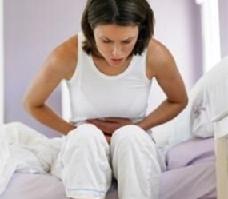
- fresh bread, pastries, buns or puff pastry cookies
- various sour fruits and berries
- meat broth, mushrooms, borscht
- chocolates and ice cream
- any canned food, smoked fish and meat, marinated products
- white cabbage, cucumbers, radish, sorrel and radish
- hard boiled eggs and deep fried
- various sauces from mushrooms, tomatoes, fish and meat
- , kvass, any sparkling water
What can be eaten
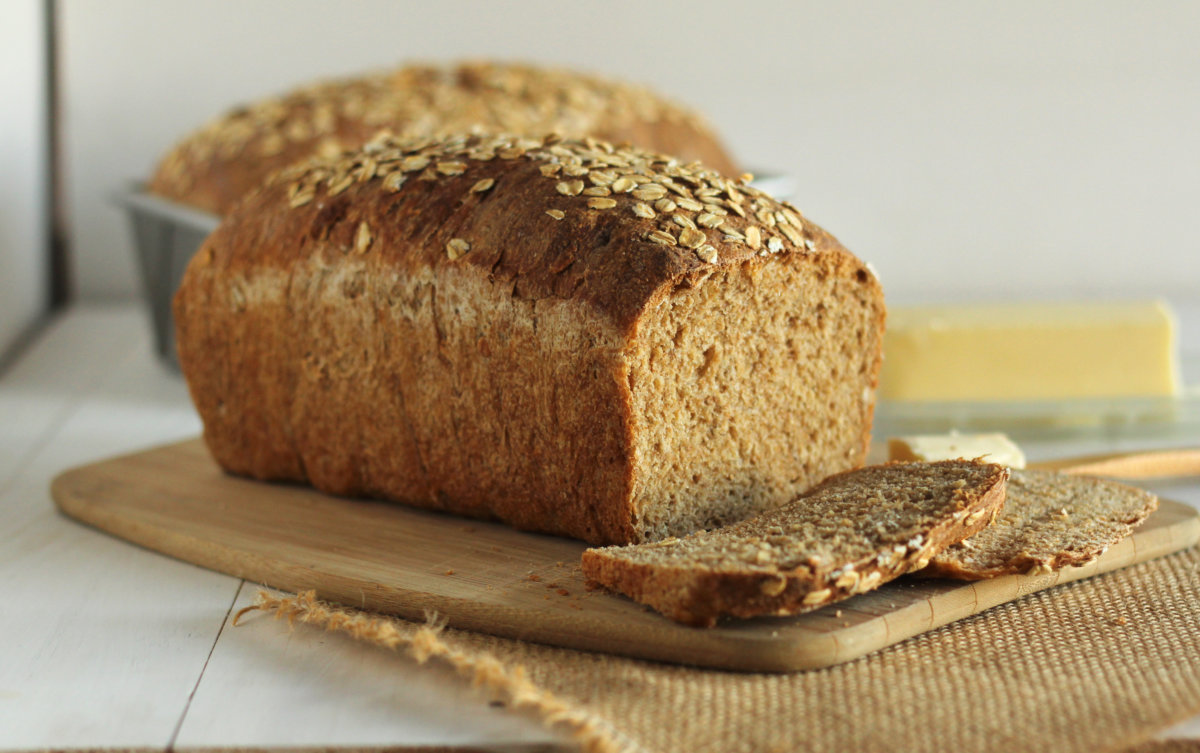
Homemade medicinal tinctures and decoctions
There are many medicinal tinctures and decoctions, which for some time remove pain in the stomach:
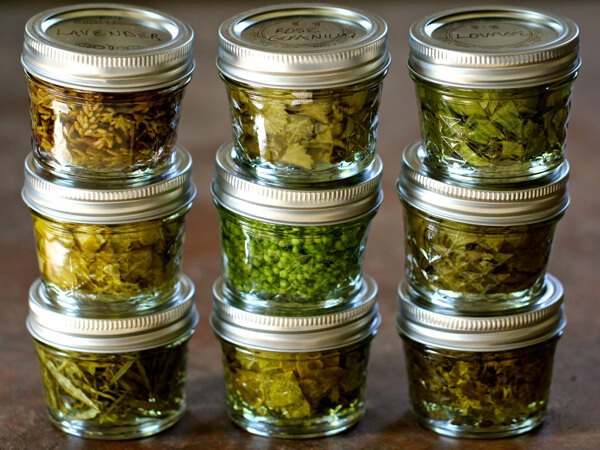
Herbal oils for stomach pain
The most popular for relieving stomach pain is olive oil. This natural product envelops the walls, eliminates discomfort, promotes healing, and also speeds up the healing process. This oil can be drunk both at high and at low acidity. It must be taken within 30 minutes. before meals 1 tbsp. l. After about 15 days, relief will be observed, but olive oil should be taken for about 2 months.
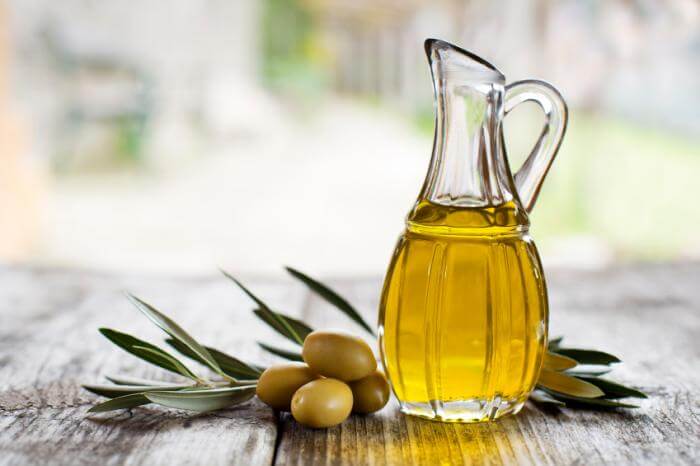
Very effective also sea buckthorn oil, which can be taken with ulcers and gastritis. Thanks to it, the mucous membrane is regenerated, this oil heals wounds, acts as an anesthetic that relieves inflammation. You need to drink sea buckthorn oil 15-20 minutes before eating, three times a day, the course of treatment is one month. Overdose is not allowed, as it may occur headache, diarrhea, vomiting. Take with caution to children, pregnant women and allergy sufferers.
Flaxseed oil is also very useful, which is taken on an empty stomach, 1 tbsp. l. It is also used as a salad dressing. Thanks to the use of linseed oil, production is normalized, pain, heaviness and swelling are eliminated.
Many people use calendula oil, which can cure gastritis. It is an effective tool for healing, restoration and normalization of the mucous membrane. Take it at bedtime, 1 tbsp. l.
Pumpkin seed oil cures many diseases of the stomach and intestines. If the patient has gastritis, then you need to drink 1 tsp. half an hour before eating.
Sesame oil is considered one of the effective remedies for the treatment of gastritis and ulcers. It also removes toxins and toxic compounds from the gastrointestinal tract. You need to take with meals 3 times a day for 1 tsp.
How to achieve a full recovery
If the patient began to treat the stomach and felt some relief, this does not mean that now you can eat everything and abandon the treatment. Be sure to follow in order to fully restore health. It is necessary to completely abandon even weak coffee, cocoa and black tea. During cooking write, you can not use oil for frying, you need to cook only for a couple in order to save an unrestored stomach.
It is necessary to refuse any spices and the use of salt in large quantities. It is not allowed to eat, even on holidays, any spicy, smoked, pickled foods. Under no circumstances should you smoke or drink alcohol.
This does not mean that the patient will no longer enjoy eating. If you buy a modern multicooker, then eating will be a pleasure. This electrical appliance preserves the natural taste of the prepared dishes, the products remain healthy and retain all their trace elements.
To fully restore the stomach, you must:
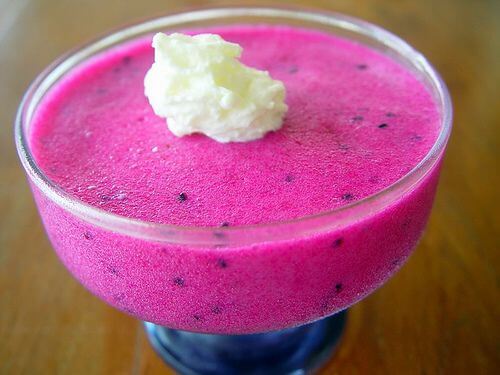
- eat warm food, not hot
- fruits are not eaten raw, but made from them mousse or jelly
- it is better to use not borscht with chopped vegetables, but mashed soup cooked in low-fat broth
- compotes should be made from berries
- apples must be baked in the oven before eating
- you can’t eat in a hurry, and overeating is also not allowed, you need to eat strictly by the hour, about 5 times a day
- it is advisable to drink less pills, it is better to replace them with herbal decoctions and tinctures, which can effectively heal the stomach and increase
For those who have a stomachache for a particularly long time, any doctor will advise you to first come to the hospital to carry out the necessary procedures and establish the exact reason why abdominal pain occurs.
After the diagnosis, medication will be prescribed. Specialist doctors advise not to self-medicate, which can only aggravate the situation and cause serious harm to health. The only exceptions are those cases when a person has eaten any harmful or spoiled foods. In such cases, you need to take emergency measures and try on your own, with medicines or folk remedies to remove the pain. However, after that, you need to go to the doctor to prescribe a treatment regimen.
If the stomach began to hurt suddenly, then doctors advise immediately:
- Temporarily refuse to eat, it is better to drink some water, lie down and relax, put your feet a little higher than your head.
- When the pain begins to subside, drink warm tea, but do not eat any foods that may cause heaviness and pain to recur.
- When the stomach hurts at night, it is recommended to drink some water and take a horizontal position.
- If the above recommendations do not improve the situation, in addition, the condition worsens, then you should immediately call a doctor.
Before the arrival of the doctor, you can take medications, relieving pain and reducing irritation of the stomach. You can drink Phosphalugel, Almagel or Maalox. If the discomfort is caused by overeating or drinking alcohol, then Rennie's medicine can be taken. No-shpa helps to relieve gastric spasm.
So, pain in the stomach can occur suddenly in every person. There are many products that increase discomfort, but there are various and vegetable oils to heal the stomach. It is important to monitor your diet, follow a strict diet, and if your health does not improve, then immediately seek help from a doctor. After the diagnosis is established, the doctor will individually select the necessary course of treatment and issue a card with a nutrition plan.
Noticed an error? Select it and click Ctrl+Enter to let us know.
Mar 12, 2017 Violetta Doctor
Stomach pain - can be provoked not only various diseases stomach or autonomic disorders, but also other factors not associated with health problems, for example, after eating, during pregnancy or before the onset of menstruation. Often the pain is felt on the left side under the ribs and behind the sternum. Its intensity also matters, it can be cutting, dull, sharp or aching, this may indicate not only a particular disease, but also the stage of its course.
If a person correctly determines the nature and place of occurrence pain, this will help the attending physician very well in making a diagnosis and prescribing the most effective remedy treatment. Often, pain in the stomach can make a person wake up in the middle of the night - most often this indicates the formation of ulcers in this organ. In addition, very often this unpleasant sensation is accompanied by symptoms such as diarrhea, an increase in the size of the abdomen, the appearance of an unpleasant odor from oral cavity. The treatment of this uncomfortable sensation consists of a complex of methods, including drug therapy and folk remedies.
Etiology
The causes of stomach pain are so diverse that only an experienced person can determine them. Such sensations can cause not only diseases of this organ, but also disorders of other organs or systems of a person. Therefore, at the very first symptoms, you should not attempt self-treatment with the help of various means and medications, because sometimes this can only complicate the situation. Stomach pain can be caused by:
- ulcerative neoplasms on the stomach or other organs of the gastrointestinal tract - because of this, there is acute pain in the stomach;
- oncological tumors;
- , which appeared for various reasons, for example, from the influence of microorganisms, stress or allergic reactions;
- growths on the mucous membrane, called polyps;
- a wide range of viral or bacterial infections.
The second group of causes are diseases that are not directly related to the stomach:
- . At the same time, pain in the stomach is aggravated during meals;
- various pathologies of the small and large intestines, for example, or;
- , in which there is a strong pain syndrome in the right side of the abdomen, and sometimes a sharp pain in the stomach. As a rule, it passes only after the inflamed organ (appendix) is removed;
- diseases of the cardiovascular system that have arisen against the background of insufficient blood supply, as well as aortic rupture;
- various caused by chemical elements.
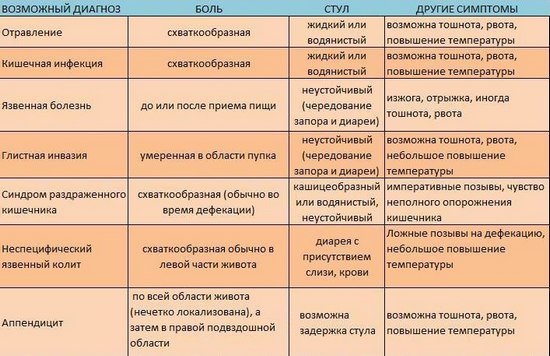
Causes that affect the appearance of pain in the stomach in a healthy person:
- eating too much fatty foods or low-quality foods. Pain in the stomach after eating disappears after a while on its own or if a person takes medication;
- the influence of stressful situations - for this reason, discomfort often occurs in children. In most cases, parents should not worry, because the pain appears on the background of stress, for example, before going to school;
- addictions of a person - smoking and alcohol, often become factors in the manifestation of pain in the stomach;
- allergic reactions;
- endocrine system disorders;
- taking some medicines, side effects which disrupt the functioning of the digestive tract, therefore, before taking them, it is necessary to read the instructions;
- various external influences on the stomach - injuries or bruises;
- fatigue or lack of sleep.
In most cases, in order to eliminate such situations, it is necessary to do several things - rationalize diet and rest, as well as use alternative methods of therapy, but only after consulting a specialist.
Causes of stomach pain after eating:
- too many dishes that the stomach is not able to withstand;
- irritable stomach syndrome - when the organ is affected by spicy spices or oversalted food;
- - in which part of the stomach is infringed;
- spasm of the stomach, connecting it with the duodenum 12;
- malignant formation, especially if it is large;
- poisoning with stale food - stomach pain will appear after a few hours.
Most often, in order to get rid of pain in the stomach after eating, it is necessary to take medicines and folk remedies, as well as adhere to a special diet.
Separately, it is worth noting why the stomach hurts during pregnancy. Some believe that if the stomach constantly hurts and feels sick, these are necessarily the first signs of such a situation and there is nothing pathological in this. But this disorder occurs against the background of hormonal imbalance, and during pregnancy, a woman's body is most vulnerable to various kinds of infections or allergies. In addition, there are several additional factors:
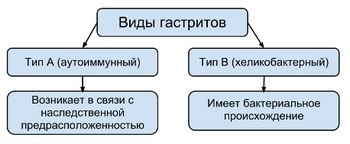
- uterus growth;
- lack of vitamins;
- the influence of bacteria.
Treatment of stomach pain during pregnancy should never be carried out medications because they all contain chemicals. From folk methods should also be abandoned. The main therapy is a sparing diet.
Varieties
Classification of pain in the stomach depending on the causes:
- organic - manifests itself against the background of already existing diseases of the stomach and digestive tract;
- functional - the factors why the stomach hurts are quite difficult to determine. The manifestation of painful sensations can be facilitated by poor nutrition, allergies, the use of medications or intoxication. Manifestations of this type of spasms are individual.
According to the prevalence of discomfort, stomach pain is divided into:
- general - spreads throughout the organ, but occurs in rare cases, mainly with peptic ulcer or disorders of the nervous system;
- partial - soreness is observed in any part of this organ, but can take on a sharp manifestation under the influence of smoking or certain medications.
Symptoms
The main symptom is, of course, pain, but it, depending on the underlying cause, may be accompanied by additional signs. The degree of expression of symptoms and, in general, their presence depends on what disease caused the manifestation of this symptom, whether there was an impact of any additional causes, and also on what general state patient's health. Thus, stomach pain may be accompanied by the following symptoms:
- nausea, which often leads to vomiting. If the stomach hurts and feels sick, this is often the first sign that the appendicitis has burst;
- bloating;
- constipation, followed by diarrhea, or vice versa;
- expression of pain between meals or at night;
- decrease or complete lack of appetite;
- a sharp loss of body weight;
- difficulty in swallowing - this symptom is most characteristic of oncology;
- fatigue is the main symptom during pregnancy;
- blood impurities in vomit or feces;
- painful sensations at the slightest touch to the stomach.
In addition, how the stomach hurts is of great importance, because with various diseases this sensation will be expressed in different ways. Thus, with ulcers of the gastrointestinal tract, the pain in the stomach is so acute and sharp that in some cases it is impossible to endure it. With gastritis, especially chronic, the symptom may not be felt at all, but in some people it manifests itself in the form of aching spasms. If a sharp pain that occurs suddenly is felt closer to the middle of the abdomen, this may mean that the person has colitis, or. Aching pain in the stomach occurs due to prolonged fasting - in such cases, if a person eats, this feeling will disappear. During severe and sharp pain, it is necessary to provide medical assistance in a timely manner, if this is not done, the victim may die from pain shock.
If you experience the following symptoms, you should immediately consult a doctor or call ambulance:
- the appearance of heartburn and belching;
- persistent nausea;
- a sharp decrease in blood pressure;
- unpleasant odor from the mouth;
- the spread of pain to other parts of the body or the navel;
- increase in body temperature;
- constant sleepiness;
- increased sweating;
- muscle weakness;
- Feeling cold even though it is warm inside or outside.
Such symptoms indicate a possible heart attack, ruptured appendicitis, intestinal infection, or inflammation of the gallbladder.
Diagnostics
In order for the doctor to make the correct diagnosis with accuracy, the patient must inform him of the location of the localization of the pain in the stomach, how severe it is and the time of the onset of the first symptoms. If a person provides complete information, this will greatly speed up the diagnosis of the main disease and the appointment of effective treatment.
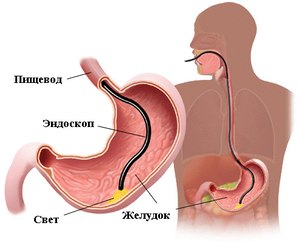
In addition, the patient must do:
- esophagogastroduodenoscopy - an examination during which the stomach is examined using a special probe with a camera;
- Ultrasound of the gastrointestinal tract - they do this to detect malignant neoplasms and structural changes in tissues.
In addition, the patient can independently monitor the state of his health, one has only to note how the stomach hurts, where exactly the pain is felt, after which it occurs. After the doctor determines why the stomach hurts, individual methods of therapy, both medicinal and folk, are prescribed.
Treatment
Treatment of stomach pain is aimed at eliminating the underlying disease. For this, patients are prescribed individual remedies, depending on which disease caused the appearance. given symptom. In addition, absolutely all patients are prescribed a special diet for pain in the stomach. If you stick to it, there is a high probability that a person will no longer feel discomfort in this area.
Diet prohibits the use of:
- vegetables that can cause bitterness;
- sweet bakery products;
- smoked sausages;
- hot sauces;
- pickles;
- eggs in any form;
- ice cream and chocolate;
- carbonated drinks, strong tea and coffee;
- sour fruits and berries.
Diet for pain in the stomach provides for the use in any quantity:
- dried bread;
- puree-like soups from vegetables and cereals;
- lean meats, but only boiled;
- dairy and sour-milk products;
- freshly squeezed juices and fruit drinks;
- potatoes, cabbage, beets, carrots, tomatoes;
- pâtés;
- honey, jelly, jam.
In addition, you can treat stomach pain with the help of folk remedies including recipes from:
- cucumber juice;
- infusion based on St. John's wort and alcohol;
- honeysuckle decoction;
- plantain leaves to be chewed;
- olive oil and honey;
- mixtures of elecampane and Cahors root;
- tincture of potato or cabbage juice and honey;
- chamomile tea;
- decoction of flax seeds.
Folk remedies are used only after consulting a doctor, if this is done without a prescription, you can only worsen the course of the underlying disease. It is worth remembering that such funds are prohibited for women who are expecting a child.
"Pain in the stomach" is observed in diseases:
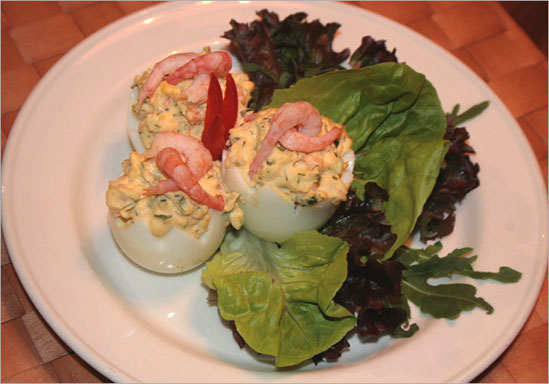
Adenocarcinoma of the stomach is an oncological process that develops in the glandular epithelium of the stomach. In the main risk group, men and women of the age group of 50-65 years. According to statistics, in men, glandular stomach cancer is diagnosed three times more often. Since on initial stage the disease is asymptomatic, in 40% of cases treatment begins at an advanced stage.
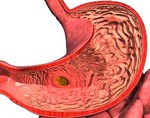
Pain itself is an unpleasant feeling that signals a malfunction in the body. This syndrome has protective properties. Pain has a different character. To assess pain, find out its localization, prevalence, irradiation, connection with eating, changing body position.
Pain in the stomach with different pathologies has its own characteristics. A detailed description of abdominal pain in a person will help to quickly make the correct diagnosis, prescribe effective treatment. Symptoms of stomach pain and their characteristics:
- intensity;
- the nature of the pain in the stomach.
The objectivity of such a symptom is doubtful, since each person has a different sensitivity threshold. With gastritis, the pain is hardly noticeable - the patient may not treat the pathology for a long period. Non-intense pain is observed during oncological formation. With ulcerative pathology of the stomach, the pain is stronger, the patient is forced to turn to a specialist for help. A perforated ulcer can cause shock in the patient. background diseases ( diabetes), transferred surgical interventions can reduce the symptom of pain until it disappears completely.
Any pathology of the stomach has its own characteristic of pain. Chronic gastritis is characterized by aching pain, heaviness in the abdomen, and distension. Burning pain during gastritis indicates the appearance of solarite (increased acidity and activity of hydrochloric acid). The symptoms of soreness also increase with the development of pancreatitis, colitis, cholecystitis.
Ulcers are characterized by sharp and. With perforation of the ulcer, the syndrome acquires a sharp and dagger character. Pain in the stomach of a prickly, cutting and cramping character also occurs with chronic duodenitis.
Additional symptoms
Discomfort in the abdomen and intestines indicates the development of dysbacteriosis. Identifying the true cause of the appearance of such a symptom will help prescribe an effective treatment for such a pathology. Discomfort can also appear with dyspepsia and. Dyspepsia is a functional disorder of the digestive tract. It can develop against the background of ulcers, chronic pancreatitis, cholelithiasis and gastroesophageal reflux pathology.
Occurs with an unbalanced diet, prolonged stress, taking certain drugs. Depending on the abuse of certain foods, dyspepsia is classified into the following subspecies:
- fatty - occurs when a large amount of fat is consumed;
- putrefactive - occurs after the abuse of protein foods;
- fermentation - from an excess of carbohydrates in the diet.
Human dyspepsia is characterized by bloating. Possible nausea, vomiting. Irritable bowel syndrome is another cause of abdominal discomfort. The cause of this pathology can be stress, trauma, vegetovascular dystonia. Often, an intestinal infection, poisoning can provoke a pathology. Doctors distinguish the following symptoms of irritable bowel syndrome:
- discomfort and pain in the abdomen;
- alternating constipation and diarrhea;
- bloating that gets worse after eating
- depression, anxiety;
- migraine, dizziness;
- nausea, heaviness in the stomach;
- lump in throat, panic.
To alleviate the patient's condition, the diet is corrected, it is recommended to take sedatives, enzymatic medicines. The scheme of symptomatic therapy is determined in each case individually.
Symptoms and diseases
The causes of development are associated with various pathologies. Gastritis is asymptomatic for a long time. Then there is a dull, aching pain. Soreness worse after sour, fried foods. At the end of the meal, the stomach bursts. The patient vomits frequently. Characterized by heartburn, an unpleasant aftertaste in the mouth, a tendency to constipation. The main symptoms of pathology:
- weakness, fatigue;
- nervousness, irritability;
- drops in blood pressure;
- drowsiness, pallor of the skin and mucous membranes;
- increased sweating;
- burning tongue;
- numbness and cramps in the limbs.
Peptic ulcer of the stomach is characterized by severe soreness that occurs a few hours after a meal. There are also "hungry" pains, when pain develops when you want to eat and disappears immediately during a meal. There may be periods of exacerbations (spring, autumn). Patients are tormented by belching sour and heartburn. Nausea and vomiting are possible.
Appetite decreases, the patient loses weight. In the event of acute, dagger pain, we can talk about the development of perforation of the ulcer (a hole develops, the contents of the stomach pass into the abdominal cavity). It's deadly dangerous complication the pain is unbearable. Immediate surgical intervention is required.
- This is a rare pathology, which is characterized by pain in the abdomen of a aching nature. Often develops nausea, vomiting, bleeding. With oncological neoplasms, persistent, non-intense, but constant pain is observed. Initially, appetite decreases, patients are quickly satiated with a small amount of food. There is heaviness in the stomach, poor digestion of food. Anemia develops, an aversion to meat food, body temperature rises (up to 38 ° C). In the terminal stages, such tumors cause bleeding. There is vomiting of blood, the feces become black.
Infectious pathology occurs against the background or after a viral and bacterial disease (this condition is called " intestinal flu"). The pain is spasmodic, cramping in nature, diarrhea, nausea, vomiting are possible, body temperature rises.
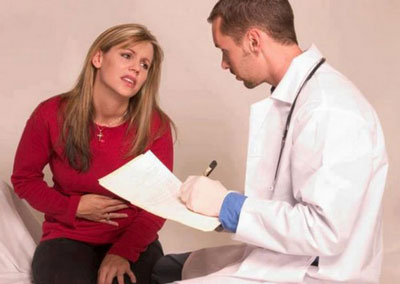
Additional pathologies
- Functional imbalance occurs against the background of overeating, with the abuse of alcohol. The pain is oppressive. The patient feels pressure in the stomach, a feeling of fullness. Nausea and vomiting are possible. Constipation and flatulence develop.
- Poisoning is characterized by sharp and intense pain. There is nausea and severe vomiting. Sweating, weakness, malaise develops. On average, the first symptoms of poisoning appear after 2 hours after a meal. The clinic of poisoning will depend on the nature of the substance that caused the poisoning. Often there is a headache, dizziness, loss of consciousness is possible.
- Soreness can occur with intolerance to certain substances (lactose). Patients at risk cannot consume dairy products. They develop flatulence, bloating, liquid stool. Growing nausea and vomiting. The pain has a aching character of medium intensity.
- With pancreatitis, soreness is localized at the top of the abdomen, it may have a girdle character. Severe and intense pain often radiates to the back. The patient is concerned about bloating, vomiting and nausea, an increase in body temperature, a drop in pressure (in advanced cases). The reason for this condition is the inability of the gland to produce enough enzymes.
- Colitis is painful because of an infection in the colon. Characterized by constant rumbling, flatulence, bloating, blood in the stool. Frequent urge to defecate. Colitis occurs on the background of stress, allergies or hereditary predisposition.
- The diaphragm is a muscular organ that separates the thoracic and abdominal cavities. With poor blood supply in this organ, a spasm may occur. This is manifested by a strong, sharp pain of a shooting nature. Such soreness increases with deep breathing and a sharp change in body position. Often, pain in the abdomen in children develops against the background of experiences, stress, and fear of school. In this case, the pain has a spasmodic, cramping character, frequent urge to defecate is possible.
- "Hunger pain" is diagnosed with gastritis, gastric ulcer, develops in the pit of the stomach. The syndrome has a prickly and sucking character, less often cramping. More often the syndrome worries at night, early in the morning. Pain increases significantly with physical activity, errors in the diet (the use of spicy, fatty, fried, sour).
Health care
If you experience such a symptom, you should immediately seek help from a doctor. Only after a thorough examination will complex treatment be prescribed.
Rina
In my case, it turned out that the stomach hurts due to high acidity and gastritis caused by Helicobacter pylori, I had to be treated for a long time, drinking antibiotic pills and PPIs - rabeprazole c3. Now I eat everything that is horrible and there is no pain or heartburn.
When the stomach hurts, the first thing to do is to reconsider your diet and lifestyle. Indeed, in most cases, the causes of pain are the abuse of bad habits, stress and poor-quality food. By the nature of the pain, it can be either dull, sharp, or aching. The latter indicate the acute phase of gastroenterological diseases of the gastrointestinal tract. Therefore, at the first symptoms of the disease, you should immediately begin to treat the stomach.
Causes
There is severe aching pain in the stomach for the following reasons:
- violation of the diet;
- eating low-quality products;
- the presence of ulcerative lesions or inflammation of the duodenum;
- gastrinoma;
- the presence of bacteria Helicobacter pylori in the stomach;
- smoking on an empty stomach, as a result, the mucous membrane of the digestive system is irritated, which leads to its inflammation.
The stomach can hurt after eating, in which food of a coarse consistency was present, after salty, overly peppery and fried foods. Dull pain can occur at any time of the day, on an empty stomach after waking up or after eating. Then the patient begins to eliminate drugs, but they only aggravate the situation, masking the problem. Therefore, if the pain is constant and dull in nature, it is necessary to consult a doctor and undergo a diagnostic examination that will help identify the true cause of the disease.
Dull pain in the stomach area lasts a long time, giving a person a lot of discomfort. At the same time, the patient is able to lead a former lifestyle, doing the necessary things. Constant pain does not let go for a second, although it is tolerable, the patient's condition worsens and his appetite disappears.
When diagnosing an illness, a gastroenterologist is interested in when the stomach began to hurt, at what time of the day an exacerbation occurs, takes into account the patient's state of health and his lifestyle. If the stomach hurts dully and at night, then this may indicate damage to the mucous membrane of the digestive organ and increased acidity.
Aching pains with stomach ailments
Dull pains with gastritis are not intensified, so they may not bother a person for a long time. There is tolerable discomfort in the abdomen, and if the patient can associate pain with food intake and its quality, then we are talking about chronic gastritis. With this disease, the stomach hurts dully and immediately after a meal. Discomfort in the abdomen is especially felt after eating sour, spicy and salty foods. Dishes of a rough consistency, fried and fatty can provoke pain, which as a result cause the patient to feel fear of eating.
In addition to pain, gastritis can be accompanied by heaviness and distension in the abdomen, belching, burning in the epigastric region, nausea, an unpleasant aftertaste in the mouth, heartburn and reflux. In some cases, with diseases of the gastrointestinal tract, patients complain of stool disorder. Constipation or diarrhea are episodic, but in some cases can develop a complex of functional digestive disorders in the intestine. General symptoms chronic gastritis the following:
- irritability;
- weakness;
- increased heartbeat;
- unreasonable fatigue;
- failure of the cardiovascular system;
- drowsiness;
- hyperhidrosis;
- burning sensation in the mouth;
- pallor of the skin.
Pain is the main symptom of stomach ulcers. However, it is difficult to diagnose an ailment using them, since the intensity of pain can vary from weak and almost imperceptible to severe. Pain is minimized in patients with previous gastric surgery.
Pain in ulcerative lesions is associated with food intake, so if 60-90 minutes after a meal there is discomfort in the abdomen, then this may indicate this ailment. In addition, ulcerative lesions are accompanied by the following symptoms:
- heartburn;
- unreasonable weight loss;
- nausea;
- vomiting;
- "sour" belching;
- sharp, cutting pain in the region of the hollow organ of the digestive tract.
At the first signs of gastrointestinal diseases, the patient should seek help from a doctor, since untimely treatment can lead to serious consequences.
Survey
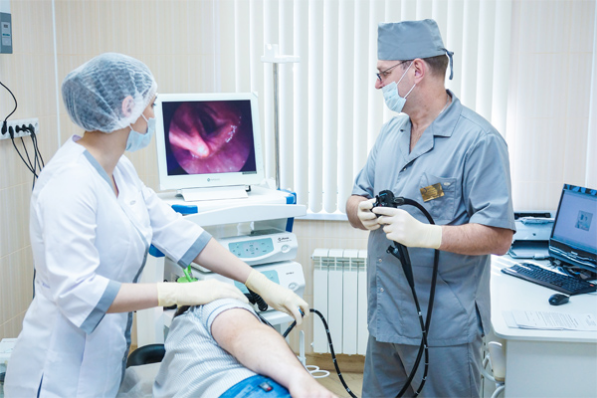 Fibrogastroscopy - modern method endoscopic examination.
Fibrogastroscopy - modern method endoscopic examination. To make an accurate diagnosis, the patient is assigned a diagnostic examination, which includes:
- fibrogastroscopy;
- stool analysis;
- biopsy;
- esophagofibrogastroduodenoscopy.
Based on the results of the examination, the doctor makes a diagnosis and determines the cause of the disease. After that, treatment is prescribed, which is based on taking medications and following a diet.
How to treat?
The appearance of dull pains in the hollow organ of the digestive tract for many people is not a reason to see a doctor. They relieve pain in the stomach area with the help of pain medications and do not know at all that this aggravates the situation. By masking discomfort in the abdomen, there is a risk of triggering serious illnesses, such as cancer. Therefore, one should not engage in self-medication and, observing regular abdominal pain at night or after a meal, it is necessary to rush to visit a gastroenterologist.
The duration of treatment depends on the severity of the disease and lasts until the patient has no concomitant symptoms. You can eliminate pain in the stomach both with medications and with dietary adjustments. Eat food in small portions and several times a day. The patient's menu should consist exclusively of high-quality products and puree-like dishes.
Diet
A significant place in the treatment of pain in the stomach is diet. Depending on the stage of the course of the disease, the patient's nutrition changes. So, with an exacerbation of the disease on the first day, the patient is allowed water, biscuit cookies. Gradually, the patient's diet expands and includes all foods, with the exception of sour, spicy and rough. Food should be soft, warm and homogeneous, fried, fatty foods should be excluded. In order not to overload an already weakened stomach, the patient should distribute meals into five or six servings a day, not forgetting that the last meal should not be before bedtime.
Folk remedies
Dull pain in the stomach differs from acute pain in that it can be tolerated, and in some cases, it is barely noticeable at all. With regular pain that disturbs sleep and worsens appetite, the patient has no choice but to take painkillers. However, not all people prefer medicines, many of them tend to traditional medicine.
You can eliminate pain without the help of drugs using the simplest folk way- Make a warm compress. To do this, you need a piece of cloth dipped in hot water. The compress is applied to the stomach for a while until the pain begins to recede. In order for the action of a warm compress to be long-lasting, it should be insulated by covering it with a plastic bag and a warm blanket or towel on top. When making a compress, it is important to monitor the temperature of the water, as too hot a liquid can cause a burn of the skin.
You can get rid of abdominal pain with the help of the following folk recipes:
- Cumin tea. It is necessary to brew a small spoonful of cumin seeds, strain and drink in a cooled state, 100 ml in the morning and evening.
- Chamomile tea. To prepare, steam a glass of flowers with the same amount of boiled liquid and leave to infuse. After that, strain the infusion and, in a cooled form, take half a glass several times a day.
- St. John's wort vodka. To make a remedy for stomach pain, you need to take four large spoons of St. John's wort and pour them with half a liter of vodka. Leave the infusion for two days and after the time has elapsed, drink 30 drops in the morning, afternoon and evening. The infusion is diluted in a glass of warm water.
Though ethnoscience may seem harmless, it, like drugs, may have contraindications. Therefore, before starting non-traditional treatment, you should consult a doctor, exclude allergies to herbs, which are the main ingredient in tinctures.
Pain in the stomach is a fairly common symptom indicating the presence of a pathological process in the stomach, as well as adjacent organs (esophagus, pancreas, liver and gallbladder).
They can be acute and chronic, have different intensity, duration and character. Localization in the epigastric region is often associated with food intake, as well as its nature (spicy, sweet, etc.).
If you want to know why the stomach hurts, first of all, you need to characterize the pain: describe its intensity, nature and localization. This will help to identify more accurate causes of stomach pain, as well as prescribe adequate treatment.
Causes of pain in the stomach
Pain in the stomach can cause diseases of the stomach itself, as well as pathologies of other organs and systems of the human body. Main question at the same time - violations of which particular organ caused pain in the epigastric region.
Causes of stomach pain caused directly by his pathology:
- viral and bacterial infections;
- functional disorders of the stomach;
- damage to the gastric mucosa;
- individual intolerance to certain foods and allergies;
- food poisoning;
- emotional and physical stress;
- stomach polyps;
- stomach cancer.
Causes of pain in the stomach, arising from damage to other organs:
- diseases of the cardiovascular system;
- pathology of the small intestine;
- pathology of the large intestine;
- spasm of the diaphragm.
A complete diagnosis can only be made professional doctor. Therefore, if you feel pain in the abdomen, it will be unwise, and sometimes even dangerous, to self-diagnose and begin self-medication.
The nature of the pain
Acute stabbing, cutting, spasmodic, aching pain in the stomach area often appears during an exacerbation of a chronic or duodenal ulcer disease. "Dagger" pain accompanies the perforation of the ulcer.
A feeling of fullness in the epigastrium (in the upper middle region of the abdomen) and heaviness occurs with a disease with a reduced secret function. The same feeling of fullness in the epigastrium accompanies pyloric stenosis, and an increase in the intensity of such pain often indicates the appearance of pancreatitis or.
Burning, annoying pain that occurs when you have a peptic ulcer or gastritis, indicates the appearance of a solarite. Aching, dull pain accompanies chronic gastritis with preserved secretion or gastric ulcer. less often peptic ulcer accompanied by sharp, spasmodic pain.

Diagnostics
Known methods for diagnosing a number of diseases of the gastrointestinal tract are endoscopy and x-rays, as well as ultrasound of the stomach. Before ultrasound of the digestive organs, preparation is carried out, it is recommended to follow a diet for 72 hours. Functional tests, the study of gastric juice, analysis of the contents of the stomach, urine analysis, fecal analysis, blood and bile tests are also important.
Gastritis: the most common cause of stomach pain
The most common disease that is accompanied by pain in the stomach is gastritis, which, in turn, is divided into the following main types.
- Bacterial. develops in connection with the appearance in the body of the bacterium Helicobacter pylari, which causes inflammation of the mucous membrane.
- Spicy . Its symptoms may appear due to chemical or mechanical damage to the mucosa, as well as on nerves.
- atrophic. manifested in connection with a large thinning of the mucous membranes of the walls of the stomach.
- Viral. begins with a weakened immune system.
- Eosinophilic. may start due to an allergic reaction.
by the most characteristic symptoms acute gastritis are:
- pain in the epigastric region;
- heartburn;
- nausea;
- vomit;
- belching;
The most important symptom indicating gastritis, pain in the solar plexus, tends to intensify after taking certain types of food or medicine. Often stomach pains get worse between meals. Acceptance shortly before a painful attack of any aggressive liquids, medicines, food is a sign of gastritis.
The chronic form of gastritis proceeds without noticeable manifestations or its manifestations are erased. These can be: belching, bad breath, barely noticeable pain in the stomach, which patients usually do not pay attention to, a feeling of heaviness in the abdomen. Indigestion, frequent upset stools, constipation can also be evidence of an inflammatory process in the gastric mucosa.
stomach ulcer
A peptic ulcer can also cause a person to experience stomach pain. Pain in this case usually appears in the first half an hour or an hour after eating. At first, the pain is not very pronounced, but as soon as the food begins to be digested, the pain intensifies and becomes unbearable. Once the food has been digested and duodenum, the pain will go away before the next meal.
Ulcer perforation
Pathology is expressed in the appearance of a through hole in the walls of the stomach or duodenum, through which the contents of these organs enter the abdominal cavity. The pain at the same time is sharp, according to the description as a "stab with a dagger", sometimes causing fainting. The abdominal muscles tense up, the general condition suffers. Perforation mainly occurs against the background of stomach and intestinal ulcers.
Polyps of the stomach
The vast majority of gastric polyps, unfortunately, are asymptomatic. Very rarely, patients may experience pain in the pancreas. Dull pain is usually due to erosion and inflammation of the polyp. Intense pain may be a sign of infringement of the polyp on a long movable leg.
In addition, large and/or multiple polyps formed near the pylorus may obstruct the patency of the gastric outlet. It is manifested by nausea and vomiting of yesterday's food, early satiety, bad breath coming from the mouth.
food poisoning
There are a number of typical signs of poisoning:
- temperature, from low at 37-37.5 to 39-40 degrees,
- loss of appetite, malaise,
- stool disorder and abdominal pain of a cramping nature,
- bloating,
- nausea and vomiting,
- cold sweat, pressure drop.
Peculiarities clinical manifestations depend on many conditions - the type of microbe or toxin, the amount of food taken, the state of the body and other factors.
Pancreatitis
During the acute stage of the disease, the signs of pancreatitis resemble those of severe poisoning.
Below are the main symptoms:
- Pain. This is the most pronounced symptom, pain in pancreatitis is usually very intense, constant, the nature of pain is described by patients as cutting, dull. In case of late delivery medical care and pain relief, the patient may experience pain shock. The pain is localized under the pit of the stomach, hypochondrium either on the right or on the left, depending on the location of the lesion of the gland, in the case when the entire organ becomes inflamed, the pain is of a girdle character.
- Nausea, hiccups, belching, dry mouth.
- Vomiting with bile.
- Constipation or diarrhea.
- Dyspnea.
- Heat.
- Increase or decrease in pressure.
- Change in complexion. The skin of the face first turns pale, then acquires an earthy hue.
- Bloating.
- The appearance of bluish spots on the lower back or around the navel.
If such symptoms appear, it is necessary to immediately call an ambulance, as the patient's condition is constantly deteriorating, which can even lead to death.
Treatment of stomach pain
What to do in this case? With gastritis and ulcers, accompanied by heartburn, sour belching and pain, you can take the following drugs:
- Gastal;
- Almagel;
- Anacid;
- Gastrofarm;
- Maalox;
- De-nol;
- Flacarbine.
For pain caused by dietary errors:
- Gastromax;
- Cimetidine;
- Omeprazole.
The following drugs can help with stomach cramps:
- Besalol;
- Buscopan;
- No-shpa.
With pain caused by overeating, especially against the background of low acidity of gastric juice, as well as indigestion:
- Creon;
- Mezim forte;
- Panzinorm;
- Pancreatin;
- Plantex;
- Enzistal;
- Festal;
- Trienzyme.
With inflammation of the pancreas, esophagus, with peptic ulcer:
- Omez;
- Epicurus;
- Controloc.
Remember: if the drugs do not have a positive effect, and the pain does not subside, contact a specialist immediately.
